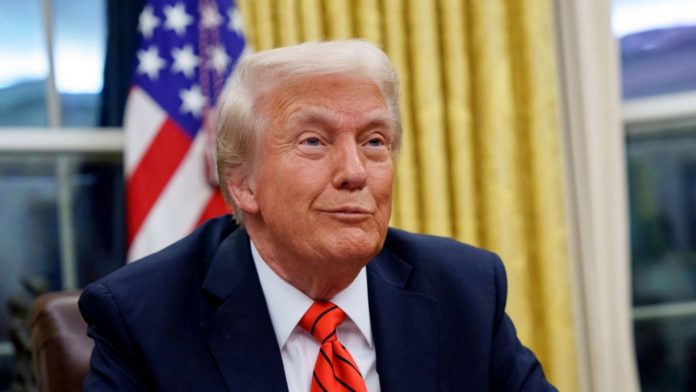President Donald Trump has proposed a tax deduction for interest paid on auto loans for U.S.-made vehicles, a move aimed at boosting domestic car production while counteracting potential price increases from newly announced tariffs. House Speaker Mike Johnson is reportedly working on the initiative, though specific details on eligibility and implementation remain unclear.
The proposal comes alongside Trump’s announcement of 25% tariffs on all imported vehicles, set to take effect on April 3. While the administration has yet to provide further details, the plan suggests that consumers who finance the purchase of an American-made vehicle could deduct the interest paid on their loans. However, it is uncertain whether the deduction would apply to taxpayers who take the standard federal income tax deduction instead of itemizing.
Industry reactions to the proposal have been mixed. Some auto dealers see it as a potential financial relief for consumers, recalling that auto loan interest was deductible before being phased out by President Reagan’s Tax Reform Act of 1986. If reinstated, the deduction could encourage more buyers to choose domestically produced vehicles, thereby supporting American auto manufacturing and potentially offsetting higher costs resulting from tariffs.
However, some auto industry analysts question whether the savings from tax deductions would be sufficient to counteract the rising costs of vehicles and loans. J.P. Morgan analysts estimate that while a tax deduction could save consumers around $20 per month in loan payments, the tariffs are expected to increase new car prices significantly, adding $60 to $90 per month in financing costs. Even with the proposed tax deduction, the net monthly payment would still be higher than the current average.
Trump has expressed confidence that the tax revenue lost from interest deductions would be offset by increased U.S. vehicle production, arguing that the policy would incentivize automakers to manufacture more vehicles domestically. While no formal legislation has been introduced, the proposal underscores the administration’s broader effort to promote American manufacturing amid significant shifts in trade policy.



